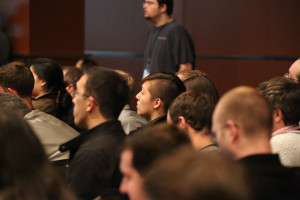Volunteering at CppCon
If you would like to attend CppCon 2018, see great C++ content, and meet our speakers and attendees, but a week’s registration doesn’t fit your time or money budget, consider volunteering.
We are looking for volunteers to help run the conference. We need people to:
- help assemble registration packets and badges,
- register attendees,
- assist speakers with Audio/Video (AV),
- and, in general, be on hand to make things run smoothly.
In exchange, we’ll see to it that you’ll spend at least half of your time in sessions. It would be great if you could join us for the whole week, but if you can only make it for one or two days, we can work with that. We have information on our Volunteer Page. If you would like more information, please email volunteers@cppcon.org.
Announcing the Volunteer Grant Program, new for 2018
Most of the volunteers that we’ve had at CppCon have come from the local area. We are delighted with the support that we’ve received from the Northwest C++ Users’ Group and the Seattle area C++ community. The help that we’ve received running the conference for the last four years has been invaluable for the conference, but it is also a wonderful experience for anyone interested in C++. We’d like to make that opportunity available more broadly, so we are announcing a program to provide financial support that will make it possible for individuals to volunteer, even if they would have to incur travel and lodging expenses to attend the conference.
This program has grants to cover some or (in a few cases) all of the costs of lodging and travel for a limited number of volunteers. Grants will be awarded to applicants that can commit to volunteering for five days. Grant applications will be judged on the basis of participation and leadership in the C++ community.
If you:
- are active in the C++ community on-line, in your local user group, or at C++ events,
- are actively supporting C++ on StackOverflow or GitHub,
- have worked on an Open Source C++ project like an Open Source library, CppReference, C++VAP,
- write reviews for Open Source libraries on Boost, Boost Incubator, or C++ Reviews,
- or, have a blog, podcast or YouTube channel on C++,
but have not attended CppCon because you can’t afford the travel and lodging, this is your opportunity.
For more information about the Volunteer Grant Program, read our Volunteer Page.

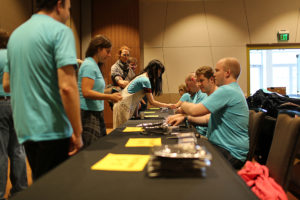
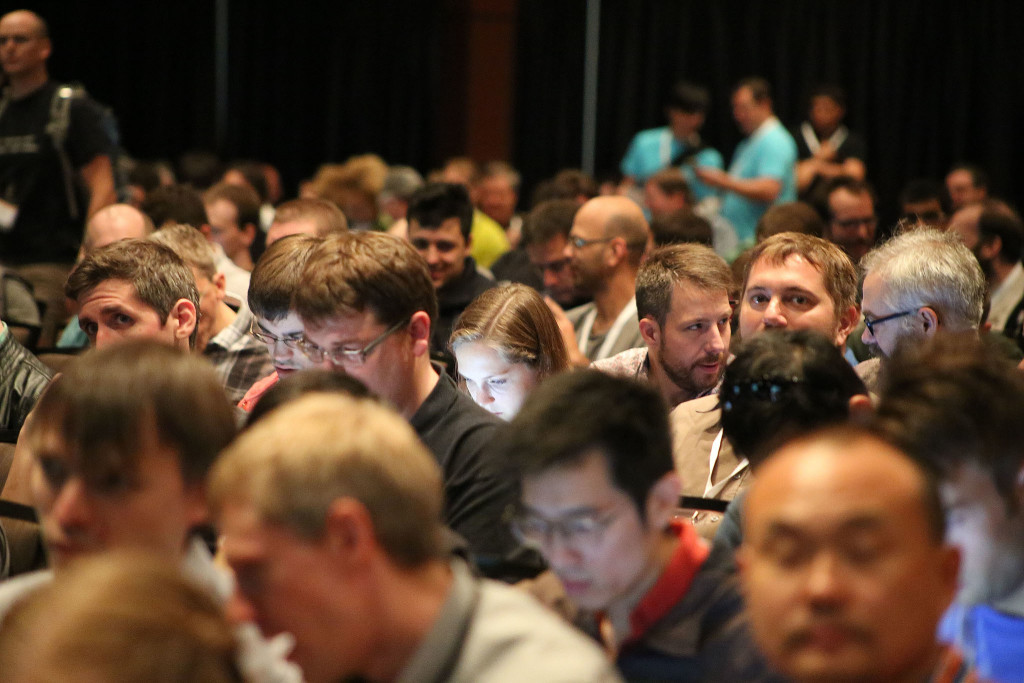
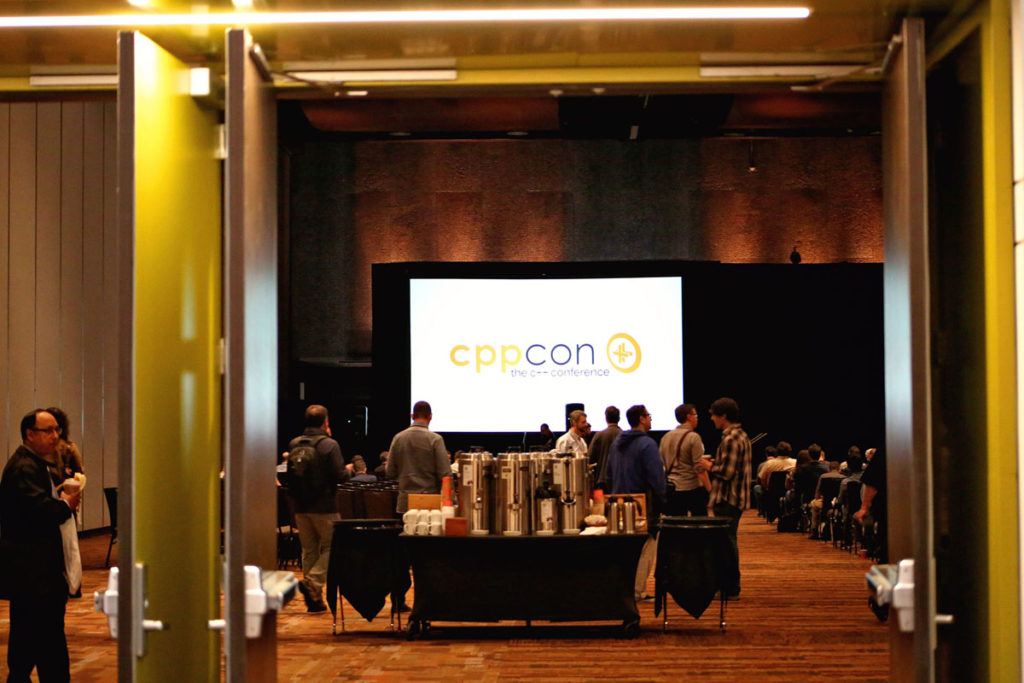 CppCon is the annual, week-long face-to-face gathering for the entire C++ community. The conference is organized by the C++ community for the community and so we invite you to present. The conference regular program consists of five days of seven tracks of one hour sessions.
CppCon is the annual, week-long face-to-face gathering for the entire C++ community. The conference is organized by the C++ community for the community and so we invite you to present. The conference regular program consists of five days of seven tracks of one hour sessions.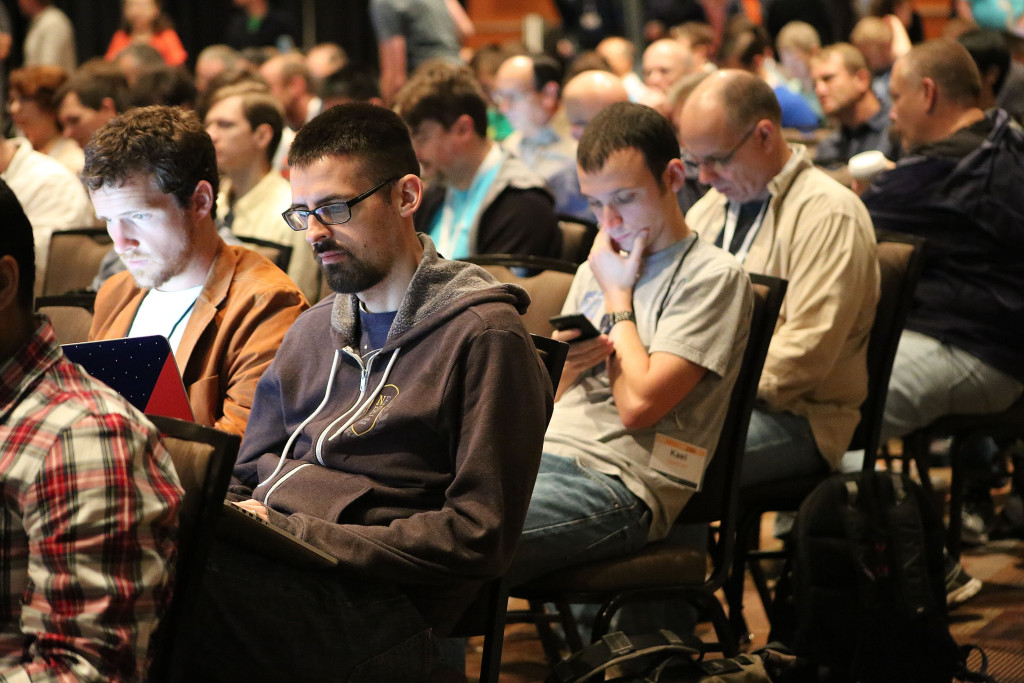
 In 2012, Matt and a colleague were arguing whether it was efficient to use the then-new-fangled range for. During the discussion a bash script was written to quickly compile C++ source and dump the assembly. Five years later and that script has grown into a website relied on by many to quickly see the code their compiler emits, to compare different compilers’ code generation and behaviour, to quickly prototype and share code, and investigate the effect of optimization flags.
In 2012, Matt and a colleague were arguing whether it was efficient to use the then-new-fangled range for. During the discussion a bash script was written to quickly compile C++ source and dump the assembly. Five years later and that script has grown into a website relied on by many to quickly see the code their compiler emits, to compare different compilers’ code generation and behaviour, to quickly prototype and share code, and investigate the effect of optimization flags.
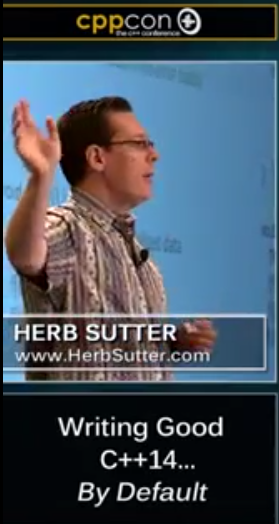 Herb Sutter‘s plenary is entitled,
Herb Sutter‘s plenary is entitled, 